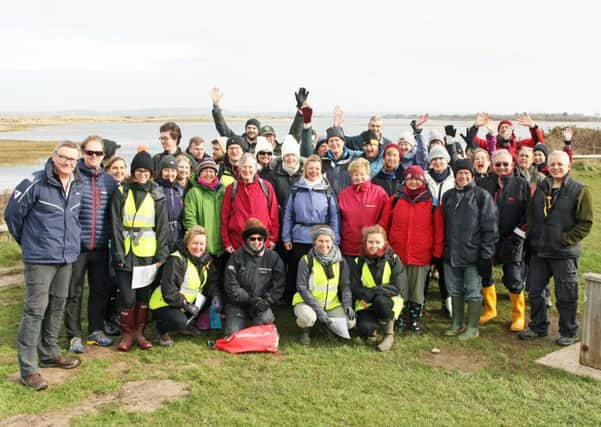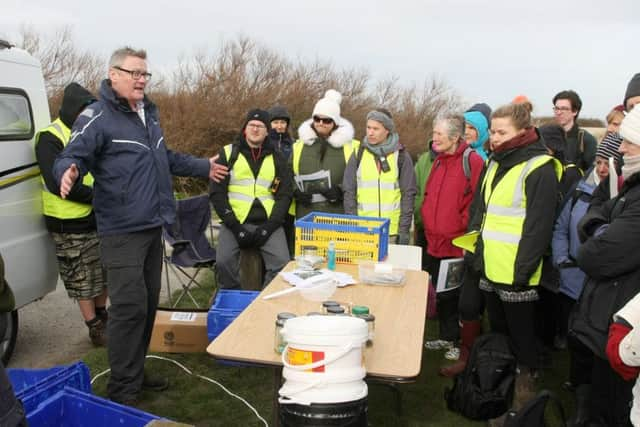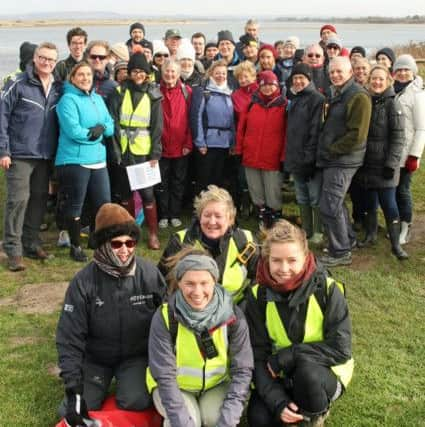Huge microplastic beach hunt takes place at West Wittering


More than 100 volunteers including from universities and organisations like the National Trust, West Wittering Estate and Chichester Harbour Conservancy, were due to carry out a count of plastics across 20 locations of the popular beach and conservation area.
The project was organised by David Jones, University of Portsmouth masters student and concerned deep sea diver, and part funded by the Friends of Chichester Harbour.
Advertisement
Hide AdAdvertisement
Hide AdDavid said: “The purpose of today isn’t just to pick up microplastics, it’s to draw attention to the wide scale of the problem. “Even here, on one of England’s most beautiful beaches, plastic waste on an almost industrial scale continues to wash up, especially after high tides and storms.


“It is not coming from visitors to the beach, it is coming from the sea and the amount being washed up is rising exponentially. “We hope today to come up with verifiable evidence of the problem and to use that to influence policy and bring about lasting cultural and political change so this and other beaches can be restored to their pristine best.”
Chichester Harbour is of national and international importance for nature conservation.
It is a Site of Special Scientific Interest, a wetland of international importance, a Special Protection Area for wild birds and a Special Area of Conservation.
Advertisement
Hide AdAdvertisement
Hide AdIt is also important commercially for farming, fishing, boatyards and tourism so the impact of microplastics is far reaching and significant.


Richard Craven, principal officer of Chichester Harbour Conservancy was among those who took part and said: “Chichester Harbour is an Area of Outstanding Natural Beauty (AONB) and has a complete suite of designations to protect its habitats and species. “None of this helps when it comes to microplastics, which harm species and degrade the environment.
“This survey will heighten understanding of this blight and act as a wake up call to many of us that throw away plastics are not at all convenient.”